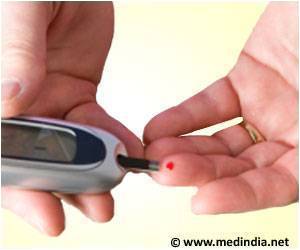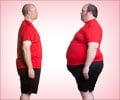Eating slowly could help prevent obesity, reduce waist circumference and lower body mass index (BMI) when compared to eating fast or at a normal pace.
- Eating slowly has been linked to lower waist circumference and BMI
- People who tend to eat quickly are more likely to be obese when compared to those who eat at a slower pace
- Interventions like practicing mindful eating may help eat slowly and also reduce the risk of higher BMI and waist circumference
Slower Eating Speed Linked to Weight Loss
The findings of the study are based on health insurance data of nearly 60,000 people with diabetes in Japan. All the participants had submitted claims and also had regular health check-ups between 2008 and 2013 for the health insurance. About 36.5% of the participants had one check-up over the six years, while 29.5% had two and 20% had three. The claims included information on the dates of consultations and treatments. The check-ups included measurements of BMI waist circumference and the results of tests for blood chemistry, urine and liver function. A questionnaire was used to analyze the participants’ lifestyle including their eating and sleep habits and alcohol and tobacco use.- Eat dinner within 2 hours of going to sleep
- 1Snack after dinner
- Skip breakfast
The reductions in waist circumference were greater among the slow and normal speed eaters.
Other factors such as snacking after dinner and eating within two hours of going to sleep three or more times a week were strongly associated with a higher BMI. All the aspects of eating and sleeping habits and alcohol consumption were significantly associated with obesity. About 52% of the participants changed their eating speed over the course of six years.
Since this is an observational study, no firm conclusions can be drawn about the cause and effect. The limitation of the study is that the eating speed was based on subjective assessment and the researchers did not assess energy intake or physical activity levels both of which may have been influential.
The researchers concluded that "Changes in eating habits can affect obesity BMI, and waist circumference. Interventions aimed at reducing eating speed may be effective in preventing obesity and lowering the associated health risks."
Tips to Eat Slowly
- Sit down and eat in a calm environment
- Use smaller serving plates
- Set a minimum number of chews per bite
- Set at least 20 to 30 minutes for each meal
- Focus on what you eat and enjoy the taste and flavor
- Avoid eating while driving
Reference:
- Tips and Tricks for EATING SLOWLY - (http://www.muschealth.org/weight-loss-surgery/forms/nutrition_files/tips-and-tricks-for-eating-slowly.pdf)
- Yumi Hurst, Haruhisa Fukuda. Effects of changes in eating speed on obesity in patients with diabetes: a secondary analysis of longitudinal health check-up data, BMJ Open (2018). DOI: 10.1136/bmjopen-2017-019589










